How Cognitive Analytics Can Empower Your Business Outcomes?
How then does it operate? Cognitive analytics uses algorithms to extract meaning from data. It’s like having an intelligent worker who never stops working or sleeps! This can evaluate millions of data points in a matter of seconds.
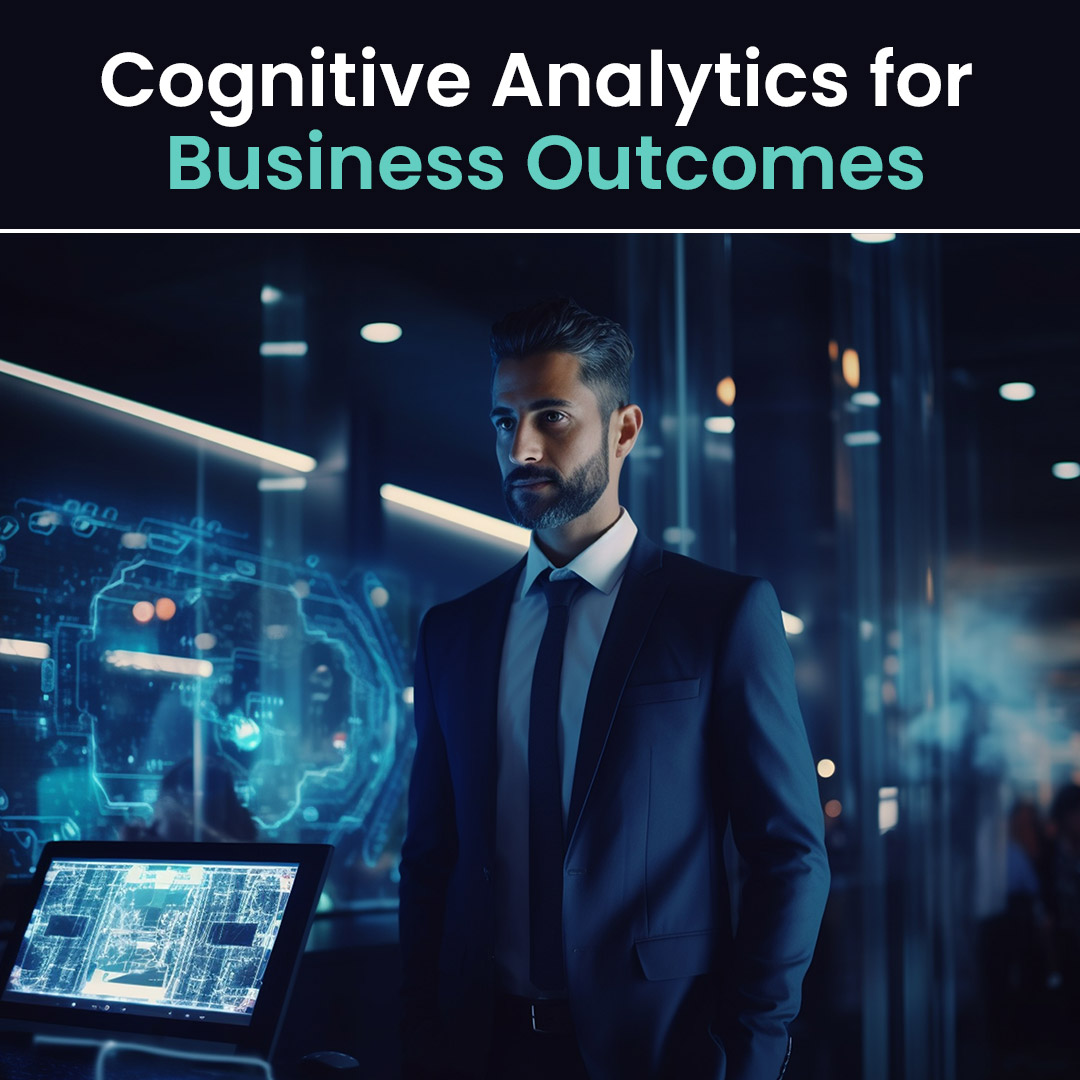
Transform Complex Data into Strategic Decisions & Empower Your Business with Cognitive Analytics
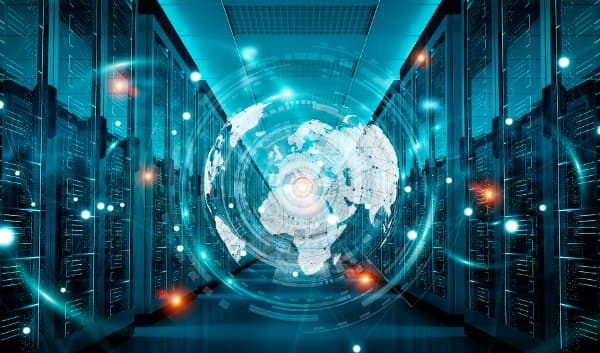
“Businesses increasingly harness data to gain valuable insights, understand market trends, and make informed decisions. Cognitive analytics solutions excel in processing and analyzing this vast data pool, extracting meaningful patterns & correlations. As the volume of data continues to grow exponentially, the demand for advanced cognitive analytic tools rises, fueling market expansion and innovation in data-driven decision-making processes.”– Global Market Insights
What is Cognitive Analytics: Overview
The goal of cognitive analytics is to leverage AI techniques and data analytics to take advantage of the advancements in computing. Put another way, it’s a field of analytics that uses pre-existing data models to generate insights and inferences by replicating human brain processes. Based on the information at hand, cognitive solutions assist businesses in making better decisions.
Additionally, this incorporates technology like:
- Artificial intelligence algorithms,
- Machine learning,
- Deep learning, and
- Semantics.
Because of the interconnections between people and data, cognitive analytics using these technologies produces more effective results. In a knowledge base, businesses can instantly search through the data to conclude, and real-time solutions can be obtained by examining unstructured data sources such as written documents, images, and social media posts.
How Does Cognitive Analytics Work: The Complete Roadmap
It assists in bridging the crucial gap that exists between the necessity of making judgments quickly and the abundance of information available. Utilizing a range of technologies, including ML, NLP, and others, cognitive analytic follows a standard procedure:
- Data Collection: To browse real-time data, it searches the whole knowledge base of structured and unstructured data that is collected from intricate and varied data sources, including IoT, sensors, equipment, and others.
- Data Preparation: After it has been collected, the data must be cleaned, arranged, and ready for analysis. In addition to making sure the data is in a format that can be processed, this stage entails gathering the data and integrating it with previously collected or historical data.
- Cognitive Model Training: The next stage is to use the collected data to train the chosen cognitive data analysis model. By identifying patterns and contextual linkages in the data, the cognitive model can produce insights and predictions.
- Cognitive Model Evaluation: It’s time to assess the algorithm’s effectiveness with an updated dataset. This contributes to the model’s accuracy and ability to generalize effectively to clean, untested data. When it is determined that it is operating effectively, the model is put into a production setting and made available to users, enabling them to derive real-time insights from their data.
Key Comparison of Cognitive Analytics vs Predictive Analytics
Despite being frequently discussed in the same sentence due to their data-driven insights, cognitive vs predictive analytics have diverse uses for businesses and entrepreneurs.
Cognitive Analytics
- First off, Cognitive Analytics simulates human reasoning and goes beyond data interpretation with its AI-driven methodology.
- It provides not just insights but also explanations and recommendations that are customized for business scenarios. Furthermore, this method works especially well in dynamic settings where companies need support for decision-making as well as contextual knowledge and data analysis.
- Cognitive analytics, for example, can be used in customer service to improve customer experience and engagement by interpreting the emotions of the consumer and providing tailored solutions.
Predictive Analytics
- Predictive analytics shines in situations like inventory management and market analysis where past data patterns are essential for predicting future trends.
- It supports proactive decision-making by assisting firms in foreseeing potential future situations.
- The unique value of each is found in how it is used: predictive analytics as a forecasting tool that offers trend-based direction, and cognitive analytics as a decision-making partner that offers nuanced insights.
Enhance Real-Time Analysis and Decision-Making. Discover Our Tailored Cognitive Analytics Solutions Now
5 Ways Cognitive Analytics Can Empower Your Business Outcomes?
Early adopters of cognitive analytics have witnessed enormous growth in several areas of their businesses. Based on statistical data, about 65% of early adopters of cognitive analytics platform consider it to be extremely important to their business. Here are a few ways in which businesses might benefit from this significant technological development.
 1. Customer Engagement
1. Customer Engagement
Businesses use cognitive data in a strategic algorithmic manner for marketing and sales. Sorting through massive volumes of data to assist in arriving at meaningful conclusions is a crucial cognitive system function. That is not where the process ends. With intelligence comparable to that of a person, cognitive analytics can forecast and suggest actions based on trends and patterns. Businesses can use cognitive analytics to adjust product prices in response to purchase data and market trends, increasing consumer engagement and revenue growth.
The use of cognitive analytics speeds up the process of analyzing data to produce insightful findings. Enhancing decision-making facilitates the establishment, attraction, and sustenance of valued client connections.
2. Improved Customer Service
It is possible to use agents more effectively for high-performance encounters by automating typical customer care tasks. Due to its ability to increase operational efficiency, cognitive computing is advantageous for businesses that provide customer support across many channels. Most issues related to subpar customer service are resolved when cognitive systems and artificial intelligence are combined. These issues include lengthy call hold times, repeating the same information to multiple agents without fixing the issue, lengthy IVR options before reaching a live agent, and more. Cognitive assistants imitate real agents and possess emotional intelligence.
Through natural language processing, they provide individualized engagement by identifying patterns, evaluating data, and drawing lessons from past experiences.
3. Customer Acquisition
Businesses can use cognitive data analysis to add insight to the increasing amounts and speeds of data about the demographics, purchasing histories, and behavior of their customers. Making decisions to contact and attract customers can be accelerated and decision-making strengthened by having the capacity to swiftly sift through copious amounts of data to uncover actionable insights through reasoning, prediction, and recommendation-making.
Real-time visibility and intelligence are another important benefit of cognitive analytics, as they significantly alter the strategic conversations that sales and marketing teams have about prospects and customers. By understanding client demands, cognitive analytic can assist businesses in improving the customer experience, which will increase engagement and acquisitions.
4. Risk Management
As we’ve been talking about, cognitive computing is far more efficient than humans in ingesting vast volumes of data to produce insightful patterns and recommendations. The financial services sector depends entirely on data integration with regulatory compliance. Cognitive computing creates value by churning data in any format—unstructured or structured—from multiple sources. It also lowers risk and improves customer happiness, security, and compliance.
Particularly in the data-driven financial services industry, cognitive analytics is a blessing since it can compile information from a variety of documents, reports, and medical and financial histories, increasing compliance and lowering risks.
5. Augment Efficiency & Productivity
Employing cognitive analytics can help businesses get over resource constraints and get insightful predictions that will increase output and efficiency. Regardless of the sector your business operates in, identifying the quickest route to the greatest outcomes is the key to taking the initiative and being competitive in the digital age. Many questions can be answered, and recommendations can be made to get predictive insights by combining the technologies of machine learning, parallel computing, and advanced analytics.
It is possible to churn massive volumes of data in a variety of formats, which boosts efficiency and production while also assisting with planning and decision-making.
Break Down Data Silos Effortlessly. Partner with Us to Streamline Your Business Intelligence
Cognitive Computing & Artificial Intelligence
Redefining company strategy and operations is dependent on artificial intelligence and cognitive computing. Businesses can use AI to automate tedious tasks, evaluate big datasets, and arrive at sound decisions. This is further enhanced by cognitive computing, which makes it possible for machines to engage with business procedures more humanely by being sensitive to subtleties and feelings.
- Within the supply chain, artificial intelligence is a more comprehensive notion that is used in inventory management and predictive analytics. To cut down on delivery times, Amazon, for instance, employs AI to estimate demand and optimize warehouse stocks. Supply chain tactics can become more flexible and responsive with the help of cognitive computing, which can comprehend consumer behavior and market trends.
- In the financial industry, companies such as JPMorgan Chase employ AI algorithms to detect fraud and analyze transaction patterns to spot abnormalities. By recognizing patterns in consumer behavior, cognitive computing improves this and makes fraud alerts and customer support conversations more individualized.
These practical uses highlight the benefits and competitive edge that AI and cognitive computing offer to companies. The foundation of astute, data-driven operations is provided by AI. Concurrently, cognitive computing adds a human-like layer of comprehension and engagement, streamlining business procedures and improving their alignment with human requirements and behaviors. For companies that want to lead the way in innovation and consumer happiness, this combination is essential.
How NextGen Invent Can Help with Cognitive Analytics?
NextGen Invent helps companies create smart AI solutions that speed their digital transformation by providing cognitive analytics consulting. To meet business objectives, we take pride in offering goal-oriented cognitive data analytics services that make use of the most recent advancements in AI, ML, NLP, and cognitive computing.
NextGen Invent takes great satisfaction in offering data analytics services that have helped businesses find gaps and successfully implement digital solutions at all organizational levels. We have effectively worked with a variety of industries, including manufacturing, digital healthcare, demand forecasting, supply chain, and fintech. We have experience working with some of the most creative companies and concepts, and we are excited to bring your business idea to reality.
Frequently Asked Questions About Cognitive Analytics
Related Blogs
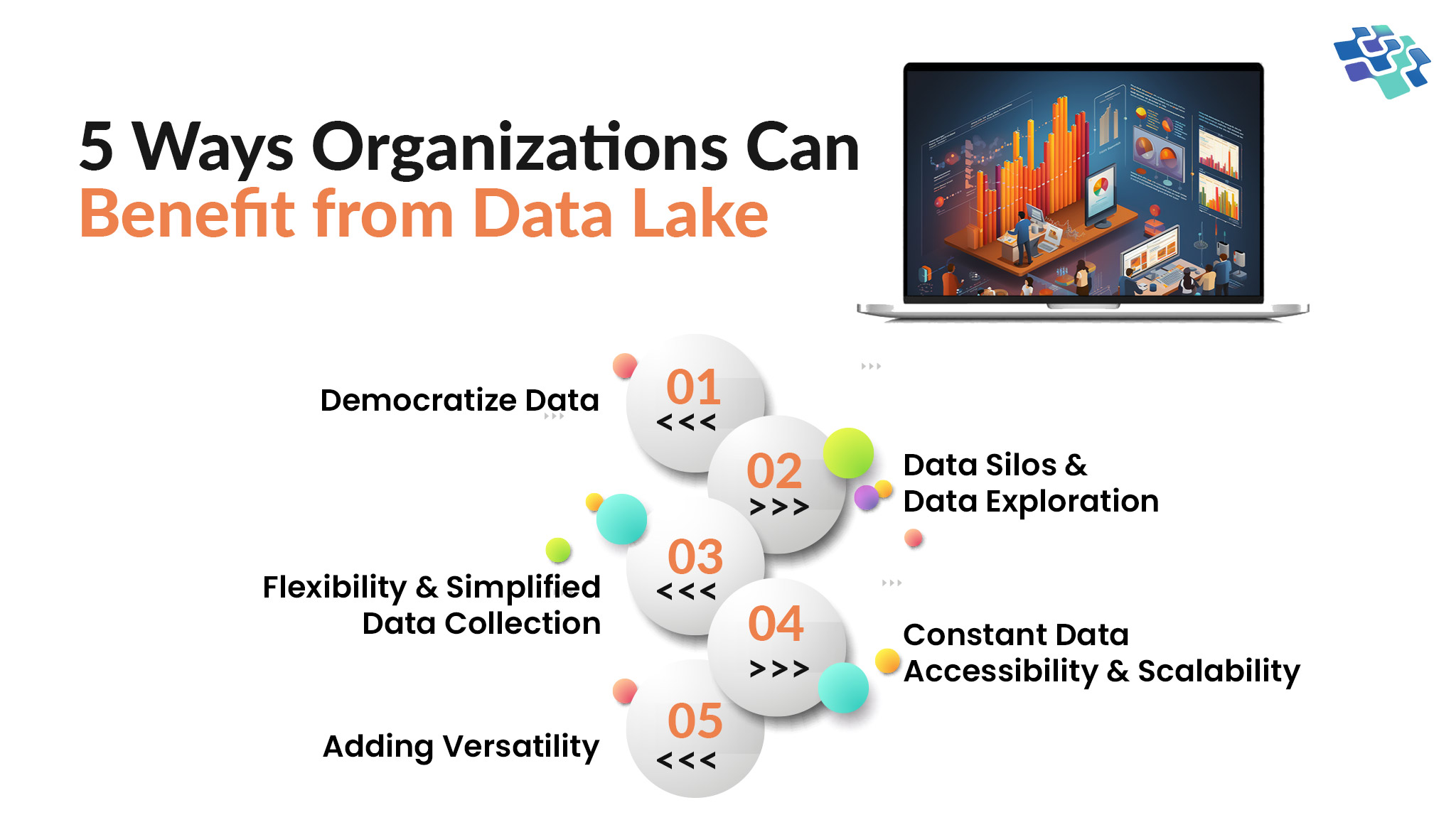
Why Does Your Business Need Data Lake?
One of the most revolutionary things the world is seeing is the sheer amount of data we are gathering. According to a business research paper, approximately 2.5 quintillion bytes of data are created daily.
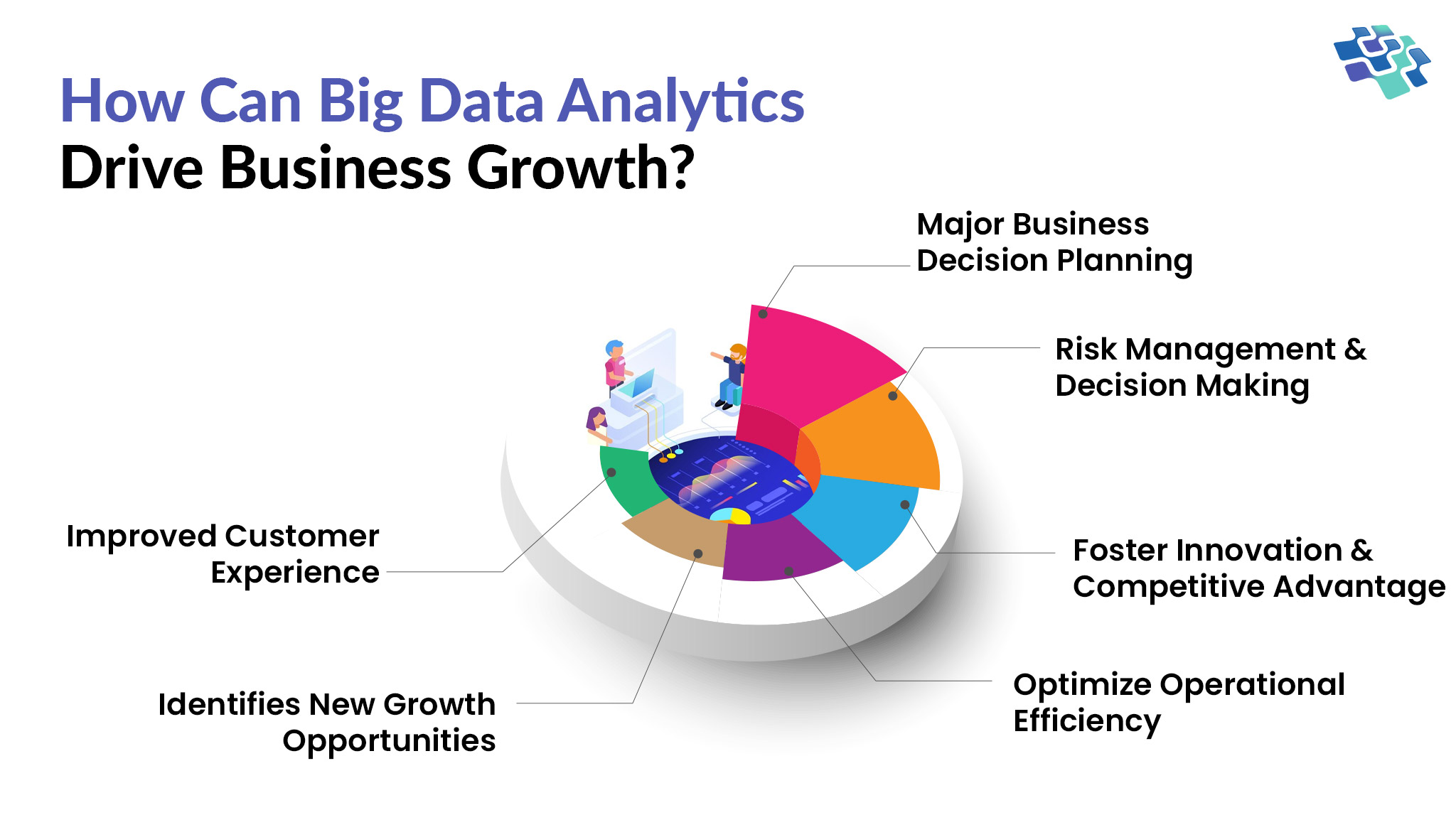
How is Data Analytics in Business Driving Growth?
Businesses are gathering enormous amounts of data in today’s ever-changing business environment. They have access to a multitude of data, ranging from website traffic and social media marketing to consumer contact and sales information.
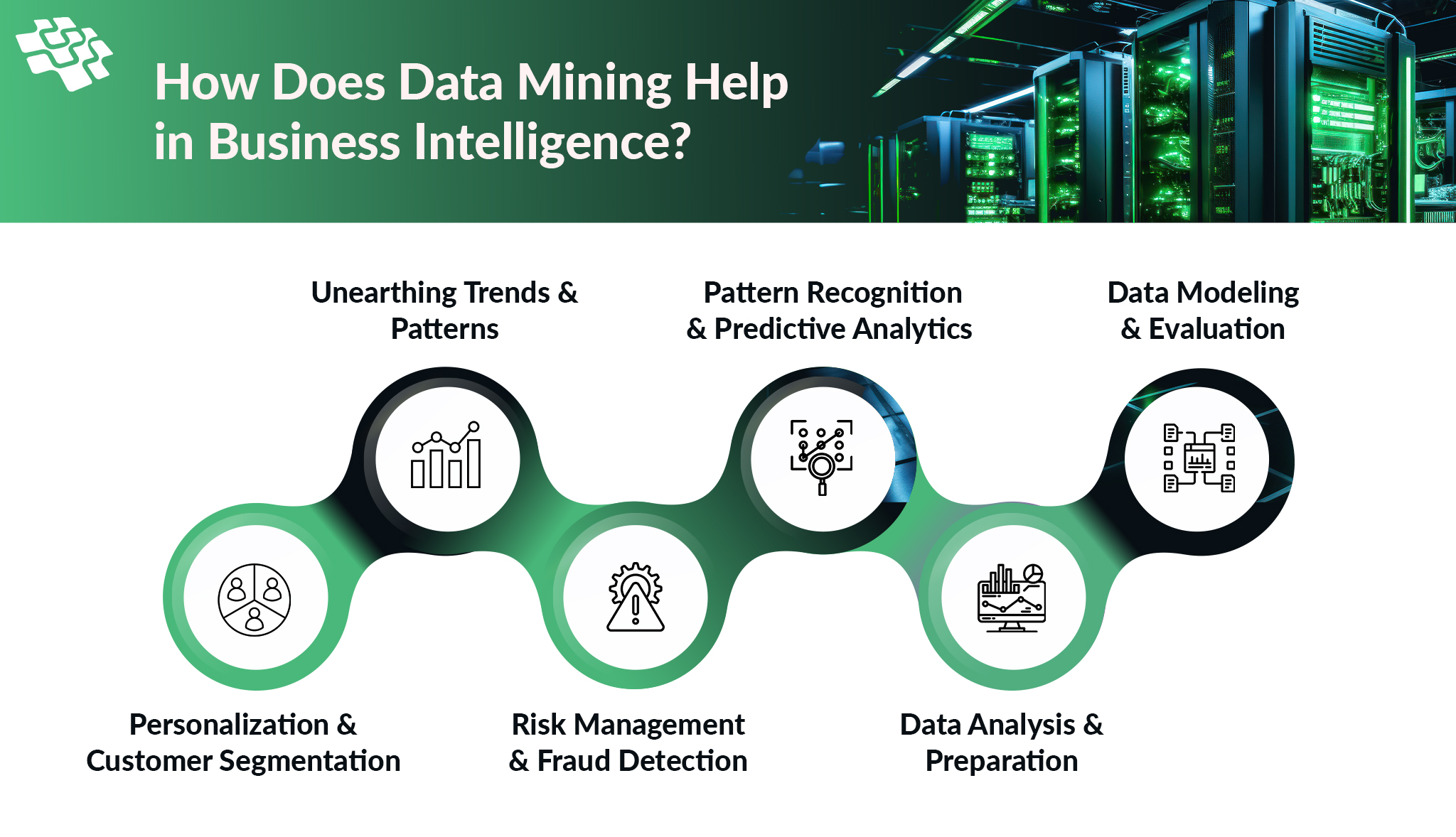
Data Mining for Business Intelligence: How Can It Help?
One of the most essential abilities for business success nowadays is the ability to derive significant insights from large amounts of data through data-driven initiatives. Fundamentally, data mining is more than just a trendy term in IT.
Stay In the Know
Get Latest updates and industry insights every month.
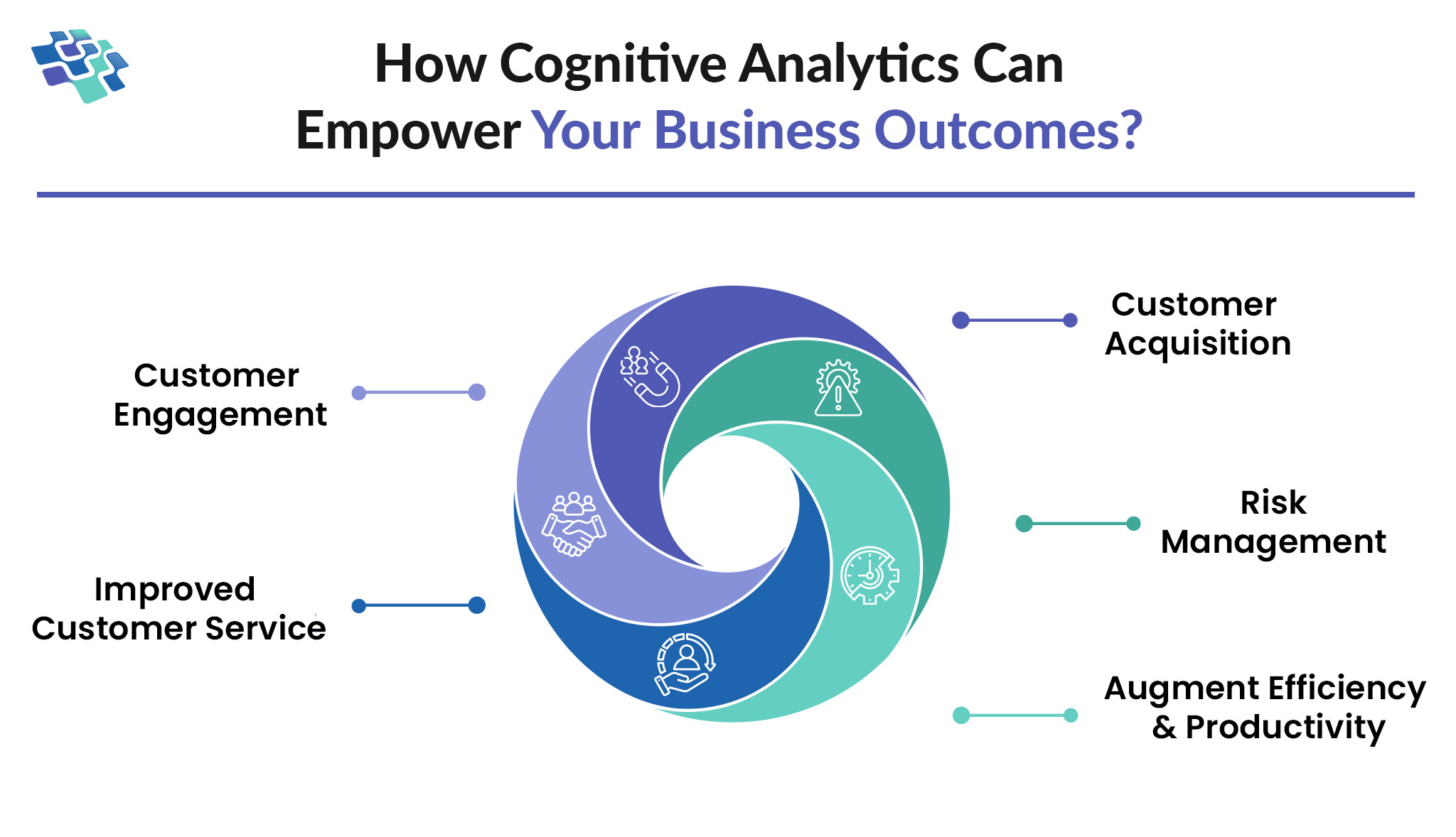 1. Customer Engagement
1. Customer Engagement